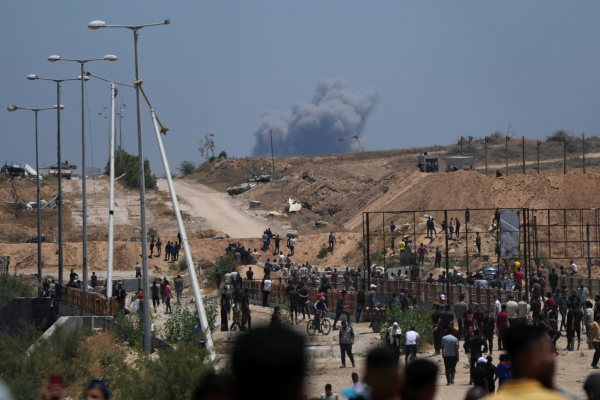The White House has announced that Israel has agreed to a fresh U.S. request for a temporary ceasefire with Hamas.
Earlier this week, Steve Witkoff, the special envoy of U.S. President Donald Trump, expressed hope that an agreement might be reached to end the Israel-Hamas conflict and return more hostages taken in the incident that started it.
White House press secretary Karoline Leavitt told reporters that Israel “backed and supported” the new proposal.
Hamas officials gave the Israeli-approved draft a cool response, but said they wanted to study the proposal more closely before giving a formal answer.
Hamas had previously said it had agreed with Witkoff on a “general framework” of an agreement that would lead to a lasting ceasefire, a full Israeli withdrawal from Gaza, an influx of aid, and a transfer of power from the militant group to a politically independent committee of Palestinians.
Israeli Prime Minister Benjamin Netanyahu has refused to end the war until all the hostages are released and Hamas is either destroyed or disarmed and sent into exile.
Read Also
He has said Israel will control Gaza indefinitely and facilitate what he refers to as the voluntary emigration of much of its population.
Palestinians and most of the international community have rejected plans to resettle Gaza’s population, a move experts say would likely violate international law.
Hamas has said it will only release the remaining hostages — its only bargaining chip — in return for more Palestinian prisoners, a lasting ceasefire and a full Israeli withdrawal. It has offered to give up power to a committee of politically independent Palestinians that could oversee reconstruction.
Hamas is still holding 58 hostages. Around a third are believed to be alive, though many fear they are in grave danger the longer the war goes on.
Thousands of Palestinians have been killed since Israel renewed its airstrikes and ground operations after ending a ceasefire in March.
Witkoff has not publicised his latest proposal, but a Hamas official and an Egyptian official independently confirmed some of the details. They spoke on condition of anonymity to discuss the sensitive talks.
They say it calls for a 60-day pause in fighting, guarantees of serious negotiations leading to a long-term truce and assurances that Israel will not resume hostilities after the release of hostages, as it did in March.
Israeli forces would pull back to the positions they held during the ceasefire Israel ended that month.





